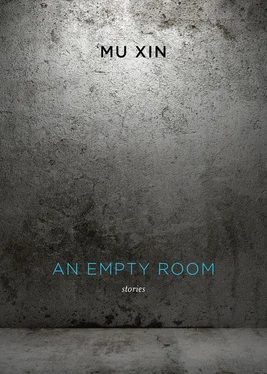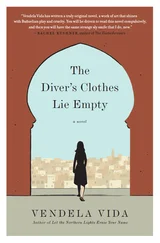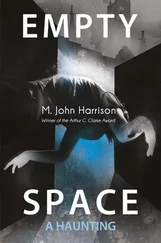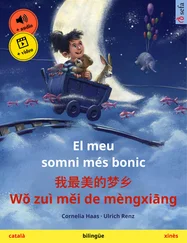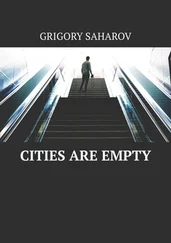Mu Xin - An Empty Room
Здесь есть возможность читать онлайн «Mu Xin - An Empty Room» весь текст электронной книги совершенно бесплатно (целиком полную версию без сокращений). В некоторых случаях можно слушать аудио, скачать через торрент в формате fb2 и присутствует краткое содержание. Год выпуска: 2011, Издательство: New Directions, Жанр: Современная проза, на английском языке. Описание произведения, (предисловие) а так же отзывы посетителей доступны на портале библиотеки ЛибКат.
- Название:An Empty Room
- Автор:
- Издательство:New Directions
- Жанр:
- Год:2011
- ISBN:нет данных
- Рейтинг книги:3 / 5. Голосов: 1
-
Избранное:Добавить в избранное
- Отзывы:
-
Ваша оценка:
- 60
- 1
- 2
- 3
- 4
- 5
An Empty Room: краткое содержание, описание и аннотация
Предлагаем к чтению аннотацию, описание, краткое содержание или предисловие (зависит от того, что написал сам автор книги «An Empty Room»). Если вы не нашли необходимую информацию о книге — напишите в комментариях, мы постараемся отыскать её.
In Our Time
An Empty Room
An Empty Room — читать онлайн бесплатно полную книгу (весь текст) целиком
Ниже представлен текст книги, разбитый по страницам. Система сохранения места последней прочитанной страницы, позволяет с удобством читать онлайн бесплатно книгу «An Empty Room», без необходимости каждый раз заново искать на чём Вы остановились. Поставьте закладку, и сможете в любой момент перейти на страницу, на которой закончили чтение.
Интервал:
Закладка:
More than anything else I dreaded writing essays. Topics for assignments were so dry: “On Great Courage and Small Courage,” or “Su Qing Tries to Persuade King Hui of the Qing on the Need for an Alliance but the King Does Not Accept: An Essay in Assessment.” I know now that the idea was to deform the mind of a child as foot-binding deformed girls’ feet. I had to improvise without any confidence. After a while, I would count words. If I had about a hundred words, I would feel relieved. With about two hundred words, I would feel like Li Bai’s “boat sailing light, leaving behind a thousand mountains.” My essays would be handed back to me all marked in red, like “a pink face mirroring a peach blossom.” I would feel embarrassed, and then vengeful. The teacher’s heavy editing of my essays made it seem that he was writing about the topics he had assigned himself. In case my mother asked to see these essays, I always made clean copies, leaving out the teacher’s negative comments. After reading one, she would smile and say something like, “Well, you are capable of making something out of nonsense, although I must say it still lacks depth.” I was secretly amused that my teacher was really the one whom my mother alluded to unknowingly as “capable of making something out of nonsense” and who lacked depth.
A boat full of people were waiting in excited anticipation to leave when I suddenly realized I had left my special bowl in the temple.
At home each of us had our own cup-and-bowl set. If someone accidentally took another’s during tea or a meal, we would wait until the mistake was rectified. I was even given my own tea cup and rice bowl during our stay in the mountains. My tea cup was designed with one of the twelve zodiac symbols corresponding to the year of my birth. I didn’t particularly care for the cup. But my rice bowl was a different story. As I didn’t like Buddhist meals, the elderly master gave me a small bowl fired in a famous kiln as a gift. The bowl had a delicate cobalt-blue glaze. Any food served in it somehow became more appetizing.
“The master is a master after all,” my mother said. “He knows the temperament of this little monkey.”
I recited in reply, “When rain stops the sky clears / Where clouds open colors merge.”
“That’s right,” she said. “This bowl is part of a long tradition of ceramic making. Look at its color. Only a master monk can afford such an extravagant gift. Make sure you don’t drop it.”
After each meal I would wash it in a brook and carefully put it away. The night before we left, I had wrapped it in soft cotton paper and placed it next to my pillow. But I woke up dazed the next morning as everyone hurried to prepare for departure. Somehow I forgot to pack the bowl. It would have been better if I had completely forgotten about it. Now that I did remember, the boat was about to leave shore.
“The bowl!” I said.
“What is it?” My mother didn’t know what I was talking about.
“That bowl, that special bowl, the gift.”
“Where did you put it?”
“Next to my pillow.”
My mother knew I could never forget about a lost object that meant so much to me. The only way to ease my mind was to possess it again.
“We can buy another one when we get home.”
“No, we can’t. It wouldn’t be the same one.” I was certain that the bowl was unique.
“What then? Must someone go back and get it?” She implied that I should forget about it since it was impossible that the boat should wait for one person to climb to the temple and back.
I walked across the landing plank, sat on the stump to which the boat was tied, and lowered my head to stare at the river.
People in the boat were stunned and started whispering to each other. No one came ashore to talk to me. They waited for my mother to force me aboard. She did nothing of the kind, and instead whispered to a muscular young boatman who picked up his padded jacket, flew across the landing plank, and ran up the mountain path.
Mountain dwellers call azaleas “red reflections of the mountains.” Azaleas — mostly red ones, some white — were in full bloom. I wandered to a bush, picked a flower, and sucked it. A honey-like taste stung my tongue. In this way I waited.
The whisperings in the boat faded. Each found something to do — some played chess or cards, others ate sunflower seeds. A few opened the fruit boxes that the monks had given them and beckoned me to eat with them on board. I waved a “No thanks.” There were plenty of interesting things along the shore: pebbles of myriad hues, green snail shells, transparent gray shrimp shells. . I felt a pang of regret. I didn’t think it would take so long.
Mountain partridges cooed and cooed in the distance. It had rained last night.
“I’m coming. .! Coming. .!” rose the voice of the young boatman, although we couldn’t see him.
He emerged from a small path and slowed to a stride. As he neared, I saw him empty-handed and felt defeated — the bowl was lost! Perhaps he couldn’t find it or it had broken.
With a broad smile he slipped one hand inside his padded jacket that was tied with a belt and took out the bowl. The cotton paper was torn and soaked with sweat but his face was free of any perspiration. I received the bowl with both of my hands, thanked him, and walked across the plank, holding it carefully.
The boat rocked slightly until there was a gradual, rhythmic evenness of rowing. The river unfolded like a huge expanse of silk. The pace of the boat breaking the waves and the occasional words exchanged between the boatmen at the oars created a rare tranquility. I didn’t feel like going into the cabin and sat alone at the bow. It had indeed rained heavily last night. I remembered hearing thunder. Mountains, now refreshingly green in the distance, blurred in the water reflections. A mild breeze caressed my face. Where was my mother?
Slowly the river became even broader and the mountains flat. I thought I should wash the bowl.
With so many people on board, the waterline was quite high. I barely had to bend my arm to touch the river. So I filled the bowl with water and poured it skyward. In the sunlight, drops of water looked like pearls. I stood up and tried to throw the water a bit farther away when my fingers slipped and the bowl dropped.
In the swirling river, the bowl, face up, was a lotus leaf separated from its stem, floating up and down, quickly disappearing toward the stern, further and further away. .
I watched something vanish, as if I was in a dream from which I couldn’t wake.
What could I say to my mother? And to the boatman?
She emerged from the cabin, carrying a saucer with dim sum.
I told her what happened.
“Someone will find it. Even if it sinks, someone in the future will recover it as long as it doesn’t break. . Eat something. No need to think about it. When you are done with your snack, come inside for some hot tea. . Such things won’t be rare occurrences in the future.”
She spoke the last sentence very softly. What could she mean?
Looking back, I find my mother’s words an ominous prophecy. Such things are indeed no rare occurrences in my life. Many things and people, far more precious than that bowl, have been lost. Some broken.
At that moment, with the floating bowl, only my childhood vanished.
Xia Mingzhu: A Bright Pearl
when my father was in his prime, a wealthy married man taking a mistress was “legitimate” in the eyes of the public. Besides, our ancestral home was in a remote and ancient village, and my father’s business was in a faraway, bustling metropolis. While my mother, my sister, and I guarded the ancestral home, my father was alone in the city, dealing with his business competitors and partners. It thus seemed reasonable that he should have a woman there who could help him with domestic and social matters. Nevertheless, my mother, knowing that Miss Xia and my father had been living together for many years, never asked him about her. If my father had boasted of it as a romantic affair, my mother would most likely not have tolerated it.
Читать дальшеИнтервал:
Закладка:
Похожие книги на «An Empty Room»
Представляем Вашему вниманию похожие книги на «An Empty Room» списком для выбора. Мы отобрали схожую по названию и смыслу литературу в надежде предоставить читателям больше вариантов отыскать новые, интересные, ещё непрочитанные произведения.
Обсуждение, отзывы о книге «An Empty Room» и просто собственные мнения читателей. Оставьте ваши комментарии, напишите, что Вы думаете о произведении, его смысле или главных героях. Укажите что конкретно понравилось, а что нет, и почему Вы так считаете.
